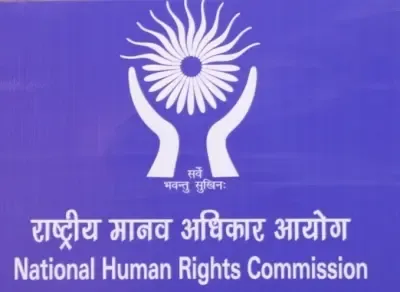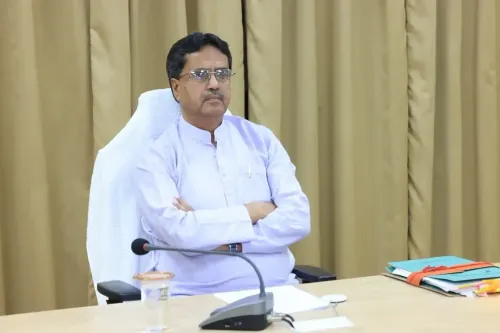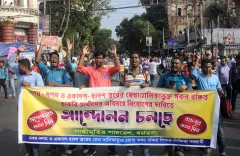Are 51 FIRs Filed Every Hour for Violence Against Women?

Synopsis
Key Takeaways
- 51 FIRs are filed every hour for violence against women.
- Awareness alone is insufficient; systemic changes are needed.
- Legal frameworks exist, but enforcement must improve.
- Empathy and gender sensitization from a young age are crucial.
- Domestic violence needs to be addressed at the individual level.
Lucknow, July 27 (NationPress) Emphasizing the critical issue of women's safety in public areas, NHRC Chairperson Justice V. Ramasubramanian pointed out that an alarming 51 FIRs concerning violence against women are filed every hour in India, according to an official statement released on Sunday.
In his address at a symposium themed 'Women's Safety at Work and Public Spaces,' hosted by the National Human Rights Commission (NHRC), Justice Ramasubramanian contrasted the nation's cultural veneration of goddesses with the harsh reality of violence faced by women, as noted by the official.
He urged for increased awareness, robust enforcement of laws, and systemic reforms to ensure women's safety and dignity.
Justice Ramasubramanian reflected on the long battle that led to the establishment of the Prevention of Sexual Harassment at Workplace Act in 2013.
The symposium gathered experts to deliberate on strategies to combat the rising occurrences of crimes against women in both workplace and public settings across the country, as mentioned in an official release.
Organized in partnership with the Dr. Ram Manohar Lohia Chair at the Department of Sociology, University of Lucknow, the event marked the second national symposium on this pressing issue, following the inaugural symposium held on September 9, 2024.
This initiative arises in response to the increasing rate of crimes against women in professional and public spheres nationwide.
NHRC Joint Secretary Saidingpuii Chhakchhuak shared personal insights on the need for the symposium, illustrating that even with comprehensive legal frameworks, incidents of gender-based violence are reported almost daily.
Prof. S.K. Chowdhury of the University of Lucknow emphasized that mere awareness is insufficient to combat crimes against women. He advocated for societal structural changes and the cultivation of a human rights culture that manifests in daily interactions.
Prof. S.M. Patnaik, Director of the Centre for Tribal Studies and Head of the Department of Anthropology at the University of Delhi, provided a socio-anthropological viewpoint on harassment in public spaces, discussing how patriarchy and anonymity contribute to gendered violence.
He quoted Carl Sagan—'Absence of evidence is not evidence of absence'—to caution against the assumption that a lack of data signifies that the issue has diminished. Patnaik advocated for empathy, early gender sensitization, and the establishment of support systems for women.
Prof. P.K. Gupta from the University of Lucknow highlighted the significant issue of domestic violence against women, stressing the importance of addressing individual behavioral patterns as a starting point for broader societal change.








